Why Do Some People Hate Electric Scooters? (And why we love them)
Last updated on: 8/6/2023
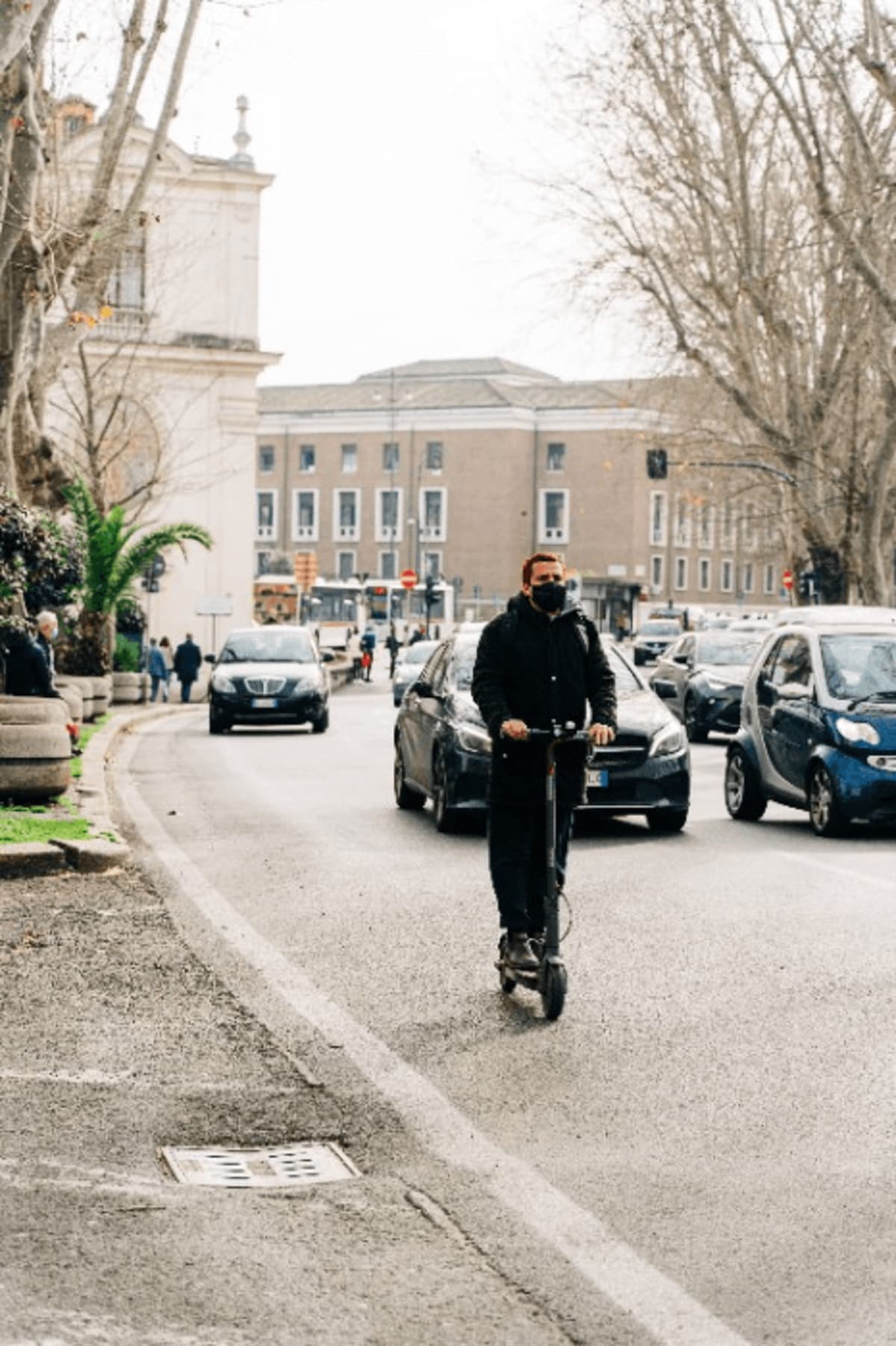
Electric scooters are witnessing a surge in popularity, revolutionizing the way we perceive urban commuting. With their promise of quick, eco-friendly transportation, they're becoming a common sight on city streets around the world. Particularly, shared electric scooter services have grown exponentially, offering convenient mobility at the tap of an app. According to Statista, revenue from e-scooter sharing in the US is expected to reach $2.5 billion by 2023, a significant increase from the $0.6 billion it was estimated in 2018.
On the other hand, personal electric scooters are also gaining traction, attracting urban commuters who seek a sustainable alternative to traditional transport modes. Companies like Miniwalker are at the forefront of this movement, creating high-quality electric scooters designed for the speed, reliability, and freedom that city adventurers crave.
Despite their numerous benefits, electric scooters have garnered some criticism. Pedestrians and drivers alike express concerns, ranging from scooters cluttering sidewalks to obstructing roads. This article will delve into these concerns, dispelling misconceptions and exploring how city infrastructure and regulations can adapt to make room for the future of urban transportation.
Pedestrian Concerns: Scooter Clutter and Waste
One of the main criticisms against electric scooters stems from pedestrians who feel the sidewalks are being overtaken by these devices. Shared electric scooters, in particular, have been cited as the primary culprits, often left on sidewalks, parks, and other public places, leading to clutter and hindering pedestrian mobility.
Furthermore, critics argue that the surge of shared electric scooters contributes to waste, as the short lifespan of these scooters coupled with improper disposal practices can lead to environmental harm.
Although these concerns hold merit, it's crucial to differentiate the environmental impact of shared electric scooters from that of personal electric scooters. As sustainability researcher Helie Moreau points out, owning a personal electric scooter can cut its carbon footprint in half compared to shared ownership.
In fact, personal scooters such as those offered by Miniwalker tend to be more eco-friendly. Owners are more inclined to maintain their scooters properly, prolonging their life and reducing waste. Moreover, the issue of haphazardly discarded scooters cluttering urban landscapes is mitigated, as personal electric scooters are usually kept at home when not being used.
It's clear that the issue isn't with electric scooters themselves, but with how they're used and managed in shared scenarios. Personal electric scooters can offer all the benefits of convenient, green urban transportation without contributing to clutter and waste. Shared electric scooter platforms are also starting to provide solutions for scooter clutter, but we are still years away before legislation can catch up with the explosive growth of the industry.
https://www.instagram.com/p/B1tOaUsJV9h/?utm_source=ig_web_copy_link&igshid=MzRlODBiNWFlZA==
Driver Annoyances: Electric Scooters on the Roads
The frustrations surrounding electric scooters are not limited to pedestrians. Many drivers have expressed annoyance at electric scooters sharing the road, citing the below 4 as the reason:
- Sharing the same road: Why do I have to tail a scooter that's going 5 miles per hour?
- Safety concerns: Most people riding shared scooters aren't experienced, and they don't follow traffic rules. They are braking unpredictably, sometimes at higher speeds.
- Parking: Improperly parked scooters take up parking space.
- Lack of regulations: If I get in an accident with an electric scooter, who's responsible? The sharing platform, me or the rider?
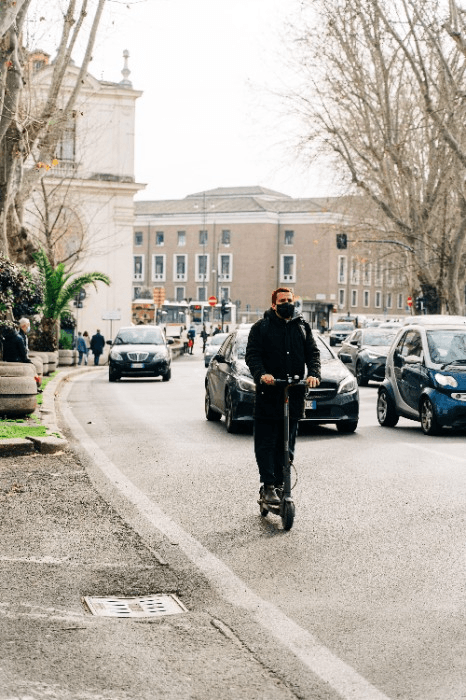
While safety on the roads is a valid concern for everyone involved, it's essential to remember that electric scooters, when operated responsibly, can share the road without posing a significant risk to drivers. Good riding etiquette, such as sticking to bike lanes where available and not weaving between traffic, goes a long way in ensuring a harmonious coexistence.
Implementing infrastructure changes, like designated bike lanes, can significantly alleviate the concerns related to electric scooters in the cities. In fact, numerous cities have seen improvements in traffic and safety following the introduction of designated lanes for bikes and scooters. Corey Harper from Carnegie Mellon University reports: "The big takeaways are that micromobility could decrease congestion, especially on highly congested corridors. But you’re going to need wide-scale bike lane deployment”
While drivers and electric scooter riders may currently be at odds in some areas, better infrastructure, coupled with responsible riding, can lead to a safer, more efficient urban commute for all.
The Urban Solution: Designated Lanes and The Best Scooter for City Life
When it comes to reconciling the needs of pedestrians, drivers, and scooter riders, city planning plays a pivotal role. The implementation of designated lanes for bikes and scooters could be a game-changer, offering a dedicated space for riders that doesn't impede pedestrian walkways or disrupt road traffic.
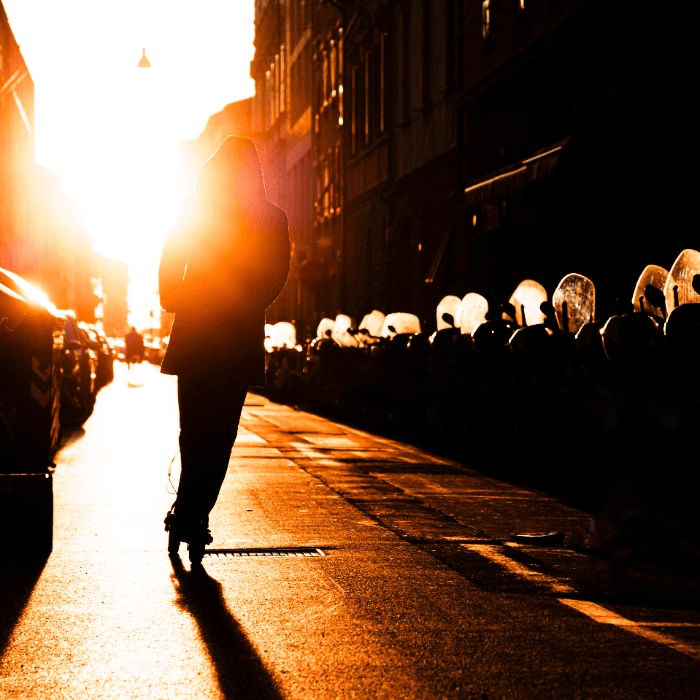
Aside from city infrastructure, choosing the right electric scooter can make a world of difference in navigating the urban jungle. The best scooter for city life is one that is portable, reliable, and easy to handle. A scooter that can effortlessly glide through bike lanes, that's light enough to carry into an office or apartment, and reliable enough to get you to your destination on time.
That's where Miniwalker electric scooters come in. Our scooters are designed with the city adventurer in mind, balancing speed, build quality, and reliability with eco-consciousness. They are the perfect companions for those who view their city as a playground, who want to bypass traffic and traverse their urban environment with ease and style.
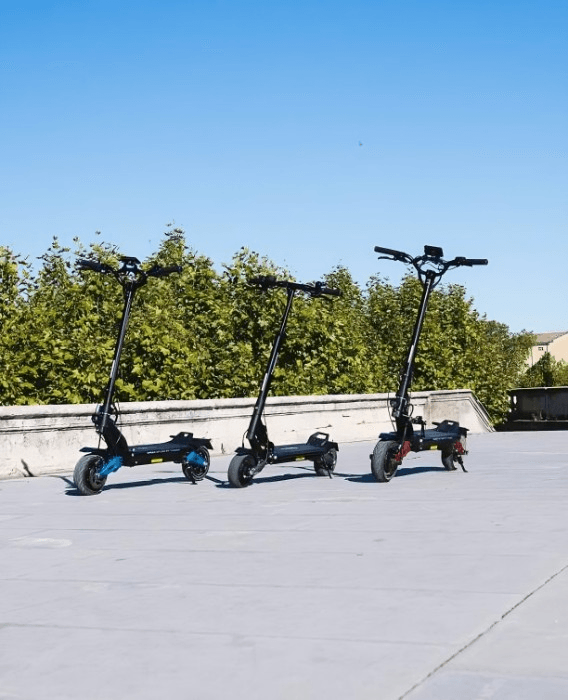
When cities embrace the potential of personal electric scooters and adapt their infrastructure to suit, and when riders choose scooters designed with the urban environment in mind, the future of city commuting looks brighter. We can look forward to cities where the streets are less congested, the air is cleaner, and mobility is a joy, not a chore.
Looking Toward the Future: The Role of Eco-Friendly Scooters
As we continue to seek sustainable and efficient ways to navigate our cities, personal electric scooters are emerging as a significant player in the future of urban transport. This future, often referred to as the 'Future of Micro-Mobility', envisages a world where personal, compact, and eco-friendly vehicles help reduce the strain on our transportation systems and the environment.
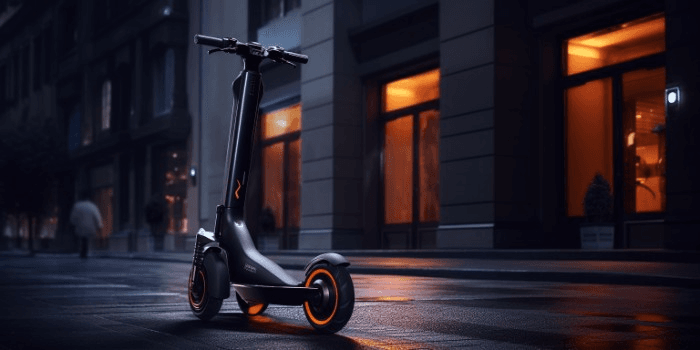
Electric scooters are leading this revolution in personal micro-mobility. Their compact design and electric operation make them a great choice for short city commutes, reducing the need for cars, and consequently, easing traffic congestion and lowering carbon impact.
Moreover, when cities adapt and implement infrastructure to accommodate these scooters, like designated scooter lanes, the benefits are even more apparent. Such changes can result in smoother traffic flow, safer streets, and a more pleasant city environment for everyone.
People who use shared electric scooters enjoy the fact that they don't have to charge them. Not having to carry a charging cable and commute short distances is a dream come true for city dwellers. But this isn't really an issue with a personal electric scooter, as they can go 50+ miles on a single charge. In addition, electric scooters can share the charging infrastructure with other electric vehicles in the future, removing the necessity to carry your own charger. Due to its compact battery, an electric scooter can charge much quicker using a fast charger, given its battery can sustain high currents.
Miniwalker scooters are designed to fit seamlessly into this vision of the future. We believe in empowering individuals with the freedom to navigate their cities efficiently and sustainably. By choosing Miniwalker, you're not just choosing a high-quality electric scooter; you're becoming a part of the solution for a better urban future.
Introducing The Tiger 9 Pro: The Perfect Commuter Scooter
When it comes to choosing an electric scooter for city commuting, there are certain features that can make your journey more convenient, safer, and enjoyable. At Miniwalker, we're committed to providing these features, and our Tiger 9 Pro is a prime example.
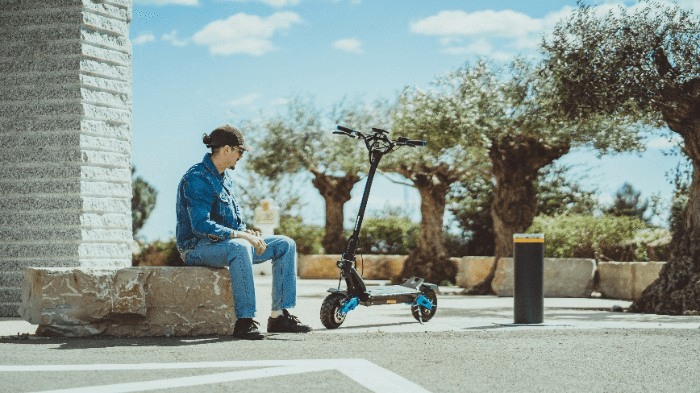
The Tiger 9 Pro is our most portable scooter yet, making it an excellent choice for city adventurers who need to navigate tight urban spaces and transport their scooters between rides. Tiger 9 Pro's collapsible handlebars and foldable steering column are designed to be easy to carry, whether you’re putting your scooter in a car trunk, using public transportation, or just moving it into your apartment. This feature makes it particularly suitable for those who need a scooter that can provide a more comfortable ride for short trips. Or long ones, what you make of your electric scooter is really up to you!
One of the standout features of the Tiger 9 Pro is its side lights. These lights are designed to make riders visible to car traffic during night riding, ensuring you are seen and can safely share the road. This feature is particularly beneficial for city commuters, who often find themselves riding in areas with high vehicular traffic.
The Tiger 9 Pro represents the Miniwalker commitment to eco-friendly, city-friendly transportation. It's not just about getting from point A to point B; it's about doing so in a way that respects the city, its infrastructure, and its inhabitants.
By choosing Miniwalker and the Tiger 9 Pro, you're choosing a future of efficient, eco-friendly urban commuting. You're choosing to be a part of the solution.
Conclusion
Electric scooters have become an integral part of our cities, offering a promising solution to urban transportation challenges. Despite the criticisms, it's clear that the issues surrounding scooter clutter and road sharing can be addressed with better use practices and improved city infrastructure, like designated scooter lanes.
Personal electric scooters, particularly those designed with city life in mind, can serve as an efficient, eco-friendly alternative to cars for short city commutes. They play a vital role in the future of personal micro-mobility, reducing traffic congestion and carbon emissions.
Among the numerous options available in the market, Miniwalker electric scooters, especially the Tiger 9 Pro, stand out for their portability, safety features, and suitability for city commuting.
In the end, choosing an electric scooter is about more than just personal mobility. It's a step towards a cleaner, more efficient urban future. So, next time you need to navigate your city, consider doing it on a Miniwalker.
Upgrade your commute with the Tiger 9 Pro, Miniwalker's leading electric scooter for city adventures. Explore more here!
Join the Newsletter
Wanna hear new articles, flash sales and events delivered to your inbox? Join the Miniwalker newsletter now!